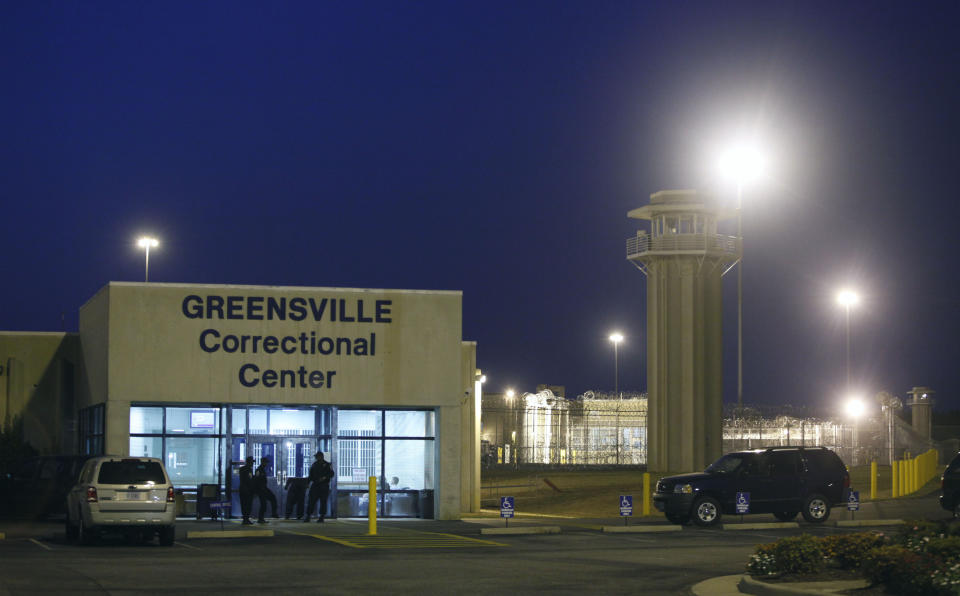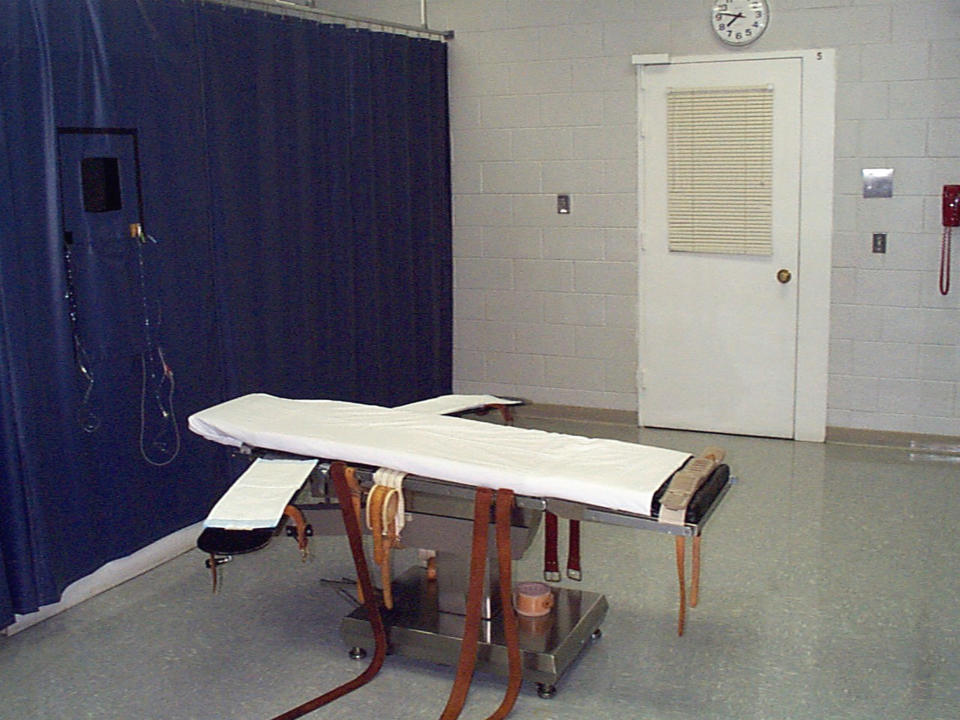Virginia advocates set to try again on death penalty repeal
RICHMOND, Va. (AP) — Death penalty opponents are cautiously optimistic they have enough bipartisan support from lawmakers to get a bill passed next year ending executions in Virginia, a state that has put more people to death in its long history than any other.
Democratic Sen. Scott Surovell is again sponsoring a measure that would abolish the death penalty, and Republican Sen. Bill Stanley said he will sign on this year as a chief co-patron. The measure would commute the sentences of the only two inmates on Virginia's death row to life in prison without parole.
Surovell said he has always opposed the death penalty but knew passing it was politically impossible with a GOP majority in either chamber. Now, with Democrats holding slim majorities in both the House and Senate for a second year, he thinks there's an opening. So do advocacy groups working to build support for the bill.
“I think we've got a real shot,” Surovell said. “I don't have the support of my entire caucus, but I think with Sen. Stanley we've got a shot.”
If the measure passes, it would likely have the support of Democratic Gov. Ralph Northam, who has previously said he would sign legislation ending the death penalty if it were replaced with life without parole.
Virginia has executed nearly 1,400 people in more than four centuries, more than any other state, according to the Death Penalty Information Center.
But executions have slowed in Virginia in recent years — the last inmate put to death was William Morva in 2017 — and no death sentences have been imposed in the state since 2011.
“Right now the death penalty is a bit of a paper tiger in Virginia because juries just are not returning that sentence,” said Michael Stone, executive director of Virginians for Alternatives to the Death Penalty.
Stone attributes the move away from death sentences in part to the recent number of high-profile news stories about wrongful convictions in Virginia. He thinks those cases have not only dissuaded jurors from issuing such sentences but also built support among lawmakers for abolition.
In meetings, Stone said lawmakers often bring up the cases of Keith Allen Harward and Thomas Haynesworth and talk about fears that an innocent person could be sentenced to death.
Harward was wrongfully convicted of the 1982 rape of a woman and murder of her husband based on bite marks but was cleared by DNA in 2016. Haynesworth, who was wrongfully convicted of multiple counts of rape, was exonerated in 2011 after serving 27 years. Both cases, and veteran Richmond Times-Dispatch reporter Frank Green’s coverage of them, were recently featured in the Netflix documentary series “The Innocence Files."
Stanley has previously sponsored legislation he intends to file again in 2021 to help people like Harward whose convictions were based on what he called "junk science." He said Harward's case and others like it are a reminder that “we don't it right, we don't get it perfect every time.”
“And I think that has to be a consideration for anyone considering this (death penalty) legislation. And if they do, I think the answer is obvious," he said.
It was not immediately clear how many individuals or advocacy groups might oppose the legislation, which was not publicly available early this week.
When Surovell filed the same bill last year, the only group that spoke against it was the Virginia State Police Association, the Virginia Mercury reported.
Wayne Huggins, the group's executive director, said in an interview that he will review the legislation when it's filed but would oppose any effort to eliminate the death penalty as punishment for a conviction of capital murder of a police officer. The group may also take exception to other offenses and doesn't think abolition should be done in a “blanket” way, he said.
“There are crimes other than capital murder of a police officer that we think are so heinous and so shocking to the conscience that the death penalty is appropriate," Huggins said.
Dana Schrad, the executive director of the Virginia Association of Chiefs of Police and Foundation, said her organization has never taken a position on the death penalty.
Jeff Haislip, the president of the Virginia Association of Commonwealth's Attorneys, didn't respond to a request for comment, nor did Cristi Lawton, executive director of the Virginia Victim Assistance Network.
Surovell's measure never made it to the Senate floor last year. Instead, a committee voted to defer consideration to 2021.
The Rev. Dr. LaKeisha Cook, an organizer with the Virginia Interfaith Center for Public Policy, said the group has been working to galvanize support for the bill by reaching out to faith leaders and planning prayer vigils next month across the state at the site of lynchings and the old state penitentiary where executions were carried out. Executions now take place at the Greensville Correctional Center in Jarratt.
Rachel Sutphin, the daughter of a slain police officer who was killed by Morva, pushed for an abolition bill last year and plans to do the same again in the new year.
Sutphin was 9 years old when her father, Cpl. Eric Sutphin, was fatally shot in 2006. In 2016, she wrote letters to then-Virginia Gov. Terry McAuliffe, urging him to commute the sentence of her father’s killer to life without parole.
“I was taught to value life, and to me, killing someone for killing someone did not bring me any sense of justice or peace,” she said.
___
Associated Press writer Denise Lavoie contributed to this report.



